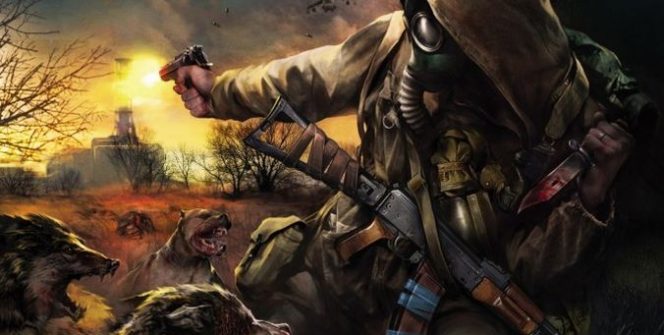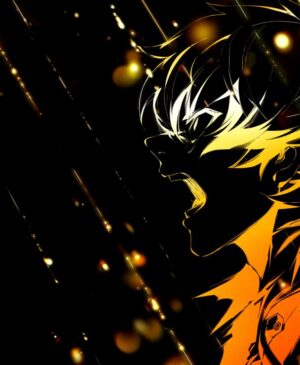Feeling betrayed by GSC’s treatment of Russian Stalker fans, a streamer has turned a video game leak into a propaganda attack.
If you’ve been poking around the Stalker subreddit lately, you’ve almost certainly come across a strange anomaly: a leaked version of the supposed console port of the original Stalker: Shadow of Chernobyl. Rumoured to be released shortly before Stalker 2, the build footage shows the well-known classic in a slightly altered state, with no cursor in sight and controller commands everywhere. It all feels very real, and while GSC declined to comment to the press, it looks like too much work for even the most determined modder.
But it is not this foreign version of Stalker that is interesting, but the accompanying document. Written by a Russian streamer who goes by the names “Неважно, Kто” and “Velichaishii” (meaning “It doesn’t matter who” and “Самый большой” respectively), in a five-page “manifesto” in the form of a confession, he outlined how and why he leaked it out the port.
“[GSC] pushed out everyone who supported and kept their game alive for 15 years,” writes Неважно, referring to what he believes is Ukrainian GSC Game World’s mistreatment of Russian fans of Stalker since Russia in February invaded Ukraine. Their list of offences spans eight incidents, ranging from “continuous discrimination against Russians on [GSC’s] Discord server“ to an outcry over the company’s fundraising for the Come Back Alive Foundation, which helps train and equip Ukrainian troops. “Purchasing weapons and military equipment is not a charity event,” he writes, claiming that equipment provided by the foundation was used in the Ukrainian strikes against Belgorod.
However, Неважно’s first complaint is that GSC tried to solicit donations for the Ukrainian military from Russian players – which is a crime in the Russian Federation – without informing them of the possible legal consequences. “This was an attempt to make the Russians a bargaining chip” – he writes – “The crime only came to light when people began to complain to Roskomnadzor (the Russian agency responsible for controlling the mass media ) because of this shit”.
PC Gamer reached out to GSC Game World to ask them about this. They said, “On social media and on our web resources, as well as thousands of other Ukrainian companies, we have published appeals to help Ukraine – however, it is important to mention that we later added a clarification about the donations from Russia. We believe that we may be in the absolute minority – if not the only ones – who do this”.
PC Gamer’s journalist also wondered why Неважно targeted GSC – and not any other Ukrainian game company that raised money for the country’s military – and hoped to get him to elaborate on where he got it from. and the leaked build of the console port of Stalker.
Regarding the origin of the build, Неважно could not say more than what he wrote in the original document, where he hinted that it came from GSC employees who were angered by the company’s attitude towards Russian players. However, GSC strongly denied this in my correspondence with them, pointing out that a bunch of personal employee information was leaked by the same Russian blogger group that distributed this build: it seems unlikely that anyone in their office would be comfortable leaking such material.
Неважно, however, has written at length and extensively about his motivations, and they reflect the sense of isolation and fraternal betrayal that is now common among Russians in relation to the conflict in Ukraine. working with video, my interest in game development – it all started with this game,” Неважно claims. But when he felt that the Russian players were treated unfairly – especially due to the GSC’s attempts to solicit donations from Russian fans – he felt that “you can’t maintain neutrality”. He also said that according to him, the Western media only gives a one-sided picture of the war in Ukraine. Still, even if he were to accept this interpretation, he“did not take up arms, kill anyone, and did not march into a foreign country… but [the GSC ] seems to have a different opinion”.
Неважно presents himself as a broken-hearted fan rather than a frothing nationalist. Still, GSC’s Zakhar Bocharov reminds us that such leaks – both of Stalker’s console port and of information from GSC employees – are “coupled with calls for harassment and death threats”, which has been a constant fact in the lives of those working at GSC since the beginning of the war. Regardless of Nevazhno’s frustration with the treatment of Russian Stalker fans, it’s inescapable that leaks like this – which he feels are entirely justified – add to the already heavy psychological burden on game developers in a country at war. Intentionally or not, Неважно has made GSC’s own work a jerk to be used against them in a conflict they didn’t ask for.
PC Gamer also asked Неважно if he intends to leak more information about GSC or if this will be his last act with the company. “I hope this ends it” – he wrote – “It doesn’t matter how I got it, the point is I didn’t lie and it’s not some fan mod… it’s a leak it happened out of a desire for justice, which I saw in revenge, at all costs. It was the cry of the soul”.
It’s grandiose rhetoric, so much so that one almost forgets that the subject being discussed is a leaked console port of a 2007 PC game, and that the people affected by it are not enemy combatants but a development team. I don’t doubt that Неважно’s heartbreak and betrayal are genuine, but that hardly justifies her later actions. He concluded his email to PC Gamer’s reporter by pleading with GSC Game World to change their attitude towards Russian gamers to a more positive one: I’m not convinced that this leak was the best way to achieve that.
As for GSC, developers who aren’t fighting are still working on Stalker 2 in offices far from the war zone. For his part, Bocharov also told PC Gamer that working in war and dealing with the consequences of such leaks is an “organic part” of a developer’s life. However, “We still believe in the best – for our game, our country and the world”.
Source: PC Gamer





